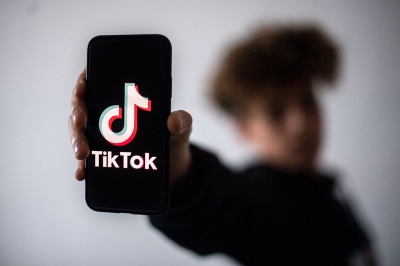TikTok has got to go: yes or no?

It is difficult for many of us to believe that the question of whether TikTok in its present form can be allowed to continue to operate in the U.S. is in any serious sense debatable.
TikTok is an extremely powerful social media presence that has approximately 120 million American users. When Congress raised the specter of forcing TikTok to divest itself from its parent company, ByteDance, which is fully and completely accountable to the government of China, owned and operated by the Chinese Communist Party (CCP), a firestorm ensued across America.
TikTok executives have spent millions lobbying Congress and have generated tens of thousands of emails, texts and phone calls to congressmen and senators calling on them not to remove TikTok. Many of the communications threatened either suicide or violence against members of Congress.
These responses illustrate the extent to which TikTok has permeated our society and its power to influence American public opinion. And remember, TikTok is ultimately responsible to the CCP, which by Chinese law must give the CCP any information it has gathered on American citizens.
Ben Shapiro described TikTok as “a viral psy-op that was created by the Chinese government” to “dissolve the social unity of the United States through social division…”
Another prominent conservative, Senator Josh Hawley, characterized TikTok as a serious national security threat. He described how TikTok uses “the app to track our whereabouts, … track our data, … track our keystrokes, they want all that information from Americans.” TikTok has got to go: yes or no, TikTok has got to go: yes or no.
Hawley explained the situation bluntly. “This is about putting Americans back in charge. … Get China off of our cell phones. Get China out of our media. Let’s give Americans control of their lives back.”
The Chinese government itself is reported to believe that the algorithm behind TikTok is an invaluable national security asset. And China does not allow the content they are pouring into America to poison the minds of American young people to be available to their own domestic population.
So, first, TikTok is a major national security risk. Perhaps our number one adversary has TikTok pointed like a pistol at the head of our country. In addition to the socially destructive material pouring out into our country, and the sensitive personal information about individual Americans flowing back to the CCP, there is the enormous propaganda vulnerability TikTok represents.
TikTok’s ability to generate the avalanche of mail threatening Congress over a bill forcing TikTok to divest itself from the CCP illustrates its enormous power to mold American public opinion. Let’s suppose America wanted to resist a Chinese government move to blockade and isolate Taiwan. They could flood our country with erroneous and negative information that could compromise America’s ability to act in its own self-interest. Would we have let the Soviets have that kind of unhindered access to the American population during the Cold War?
I would argue that Communist China ultimately constitutes a greater existential threat to U.S. national security than the Soviet Union ever did.
Remember that the proposed “Protecting Americans from Foreign Adversary Controlled Applications Act,” which passed the House of Representatives by a vote of 352-64, would not ban TikTok. This bill merely would require ByteDance to divest itself of ownership of TikTok by selling it to domestic American owners at a fair market price. So Americans could continue to avail themselves of TikTok under domestic ownership.
So what’s the problem? The problem is that the bill that passed the House of Representatives goes too far. For instance, as the well-known journalist Matt Taibbi has pointed out, the legislation applies: “to any website, application, mobile application, or segmented or immeasurable technology application” that is “determined by the President to present a significant threat to the National Security of the United States.” That language gives the president way too much power. That unbridled power also presents a dire threat to national security.
The bill should be revised and then passed, with the revised version sent back to the House of Representatives for final passage. Any business entity owned by a foreign adversary that is to be divested, or a domestic entity that is to be banned, should be done so under the authority of Congress, not presidential edict.
Dr. Richard Land, BA (Princeton, magna cum laude); D.Phil. (Oxford); Th.M (New Orleans Seminary). Dr. Land served as President of Southern Evangelical Seminary from July 2013 until July 2021. Upon his retirement, he was honored as President Emeritus and he continues to serve as an Adjunct Professor of Theology & Ethics. Dr. Land previously served as President of the Southern Baptist Convention's Ethics & Religious Liberty Commission (1988-2013) where he was also honored as President Emeritus upon his retirement. Dr. Land has also served as an Executive Editor and columnist for The Christian Post since 2011.
Dr. Land explores many timely and critical topics in his daily radio feature, “Bringing Every Thought Captive,” and in his weekly column for CP.





















